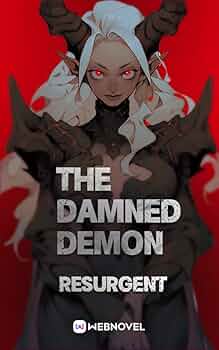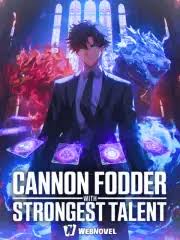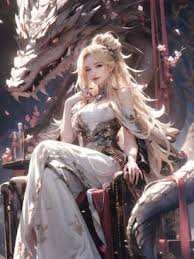The Story in 3 Sentences
A systems engineer, reborn as the talentless noble Velen, awakens the Infinity Money System in a magic-dominated universe, granting him unlimited currency to spend without restriction .
He weaponizes absurd wealth, buying loyalty, power, and divine artifacts, transforming from a scorned outcast into a figure whose financial influence commands awe and fear across realms, proving that “there’s nothing money can’t solve” .
His journey culminates not in mere riches, but in ascension to “Divine Capitalism,” becoming Velen, God of Wealth, worshipped for his boundless liquidity and influence that transcends gold and relics .
Why It Stands Out
1. The Ultimate Power Fantasy: Money as Magic
Forget elemental mastery or bloodline awakenings; true omnipotence here is a bottomless bank account. The novel weaponizes capitalism itself, turning gold into the ultimate spell, artifact, and army. Velen doesn’t train harder—he spends smarter, buying his way past every obstacle with hilarious, over-the-top extravagance that redefines cultivation tropes.
2. Divine Capitalism: A God Built on Balance Sheets
It pushes the system-novel concept to its logical, absurd extreme. Velen’s power isn’t measured in qi or mana, but in “divine influence liquidity” . His ascension to God of Wealth isn’t mystical; it’s an economic inevitability, satirizing and celebrating the idea that ultimate power is financial leverage on a cosmic scale.
3. Comedic Alchemy: Turning Cash into Chaos
The core appeal is the relentless, deadpan humor derived from Velen’s blunt, transactional approach to a magical world. His interactions—confusing ancient masters with shopping sprees, solving apocalypses with bulk purchases—generate consistent, laugh-out-loud moments as characters react with stunned disbelief to his financial artillery .
Characters That Leave a Mark
There’s Sergei – the once-arrogant noble whose fear and trembling submission to Velen’s overwhelming wealth becomes a running gag, embodying the crushing weight of financial disparity .
You’ll meet Belle, who despite her youthful appearance, commands a level of power that leaves even Velen momentarily stunned, hinting at depths and mysteries beyond mere monetary value .
And Caitlin? They’re the one who evolves from a mentee overwhelmed by Velen’s demands for extravagant spending into a key figure managing his ever-growing, bizarre inventory of purchased power .
The Flaws Fans Debate
The ending feels rushed, cramming what could have been 150-200 chapters of content into the final few, leaving narrative threads feeling abruptly severed .
Grammatical inconsistencies, particularly with pronoun usage (he/she mix-ups), occasionally disrupt the reading flow and immersion .
The sheer, unrelenting focus on spending can sometimes overshadow deeper character development or world-building, making the plot feel transactional even when it shouldn’t.
Must-Experience Arcs
Ch. 1–50: The Awakening of Infinite Credit – Velen, branded talentless, discovers his system, bewildering his family and the local academy by solving every problem—from social slights to magical deficiencies—with absurd, unprecedented purchases, establishing his modus operandi.
Ch. 150–200: The Dark Ledger – The tone shifts as Velen’s wealth attracts cosmic-level threats and moral quandaries; his spending is no longer just funny but necessary for survival, forcing him to monetize dragons and bankroll wars, revealing the darker, high-stakes cost of infinite money .
Ch. 300–321: Divine Capitalism Ascendant – Velen’s influence peaks as he transcends mortal economics, his “divine influence liquidity” reshaping universal laws; the arc culminates in his apotheosis as the God of Wealth, worshipped not for piety, but for his boundless, system-granted net worth .
Killer Quotes
“Feel free to splurge your money and prove to the entire universe that there’s nothing money can’t solve.”
“If there is, it simply means you don’t pay enough.”
“Money! To build a fortress, what you need most is money. With money, you can buy all the resources this planet has to offer!”
Cultural Impact
The phrase “If there is, it simply means you don’t pay enough” became a ubiquitous fan meme, applied to everything from gaming glitches to real-life problems, symbolizing the novel’s core, absurdist philosophy .
Fan communities constantly share “Velen-tier spending” compilations, highlighting the most outrageous purchases from the novel, from feeding dragon blood to rabbits to buying entire battlefields .
It sparked countless discussions and fanfics exploring the concept of “Divine Capitalism,” turning Velen into an icon for readers who revel in the ultimate power fantasy of solving every problem with limitless wealth .
Final Verdict
Start Here If You Want:
Pure, unadulterated wish-fulfillment where money truly conquers all, delivered with consistent, deadpan humor.
A unique twist on the xianxia/system genre that replaces grueling training montages with outrageous shopping sprees.
A completed, bingeable saga that takes its ridiculous premise to its gloriously over-the-top, divine conclusion.
Study If You Love:
Satirical explorations of capitalism and power structures within fantasy frameworks, using absurdity to critique real-world economics.
The evolution of system-novel tropes, pushing the “cheat item” concept to its logical, universe-altering extreme.
Narrative structures built entirely around a single, unwavering core mechanic—infinite money—and how it reshapes character, plot, and world.
Avoid If You Prefer:
Stories with deep, intricate character development beyond the protagonist’s spending habits.
Plots that avoid rushed conclusions or demand meticulous, slow-burn world-building.
Novels that steer clear of grammatical inconsistencies or prioritize serious, dramatic tone over comedic, transactional chaos.





